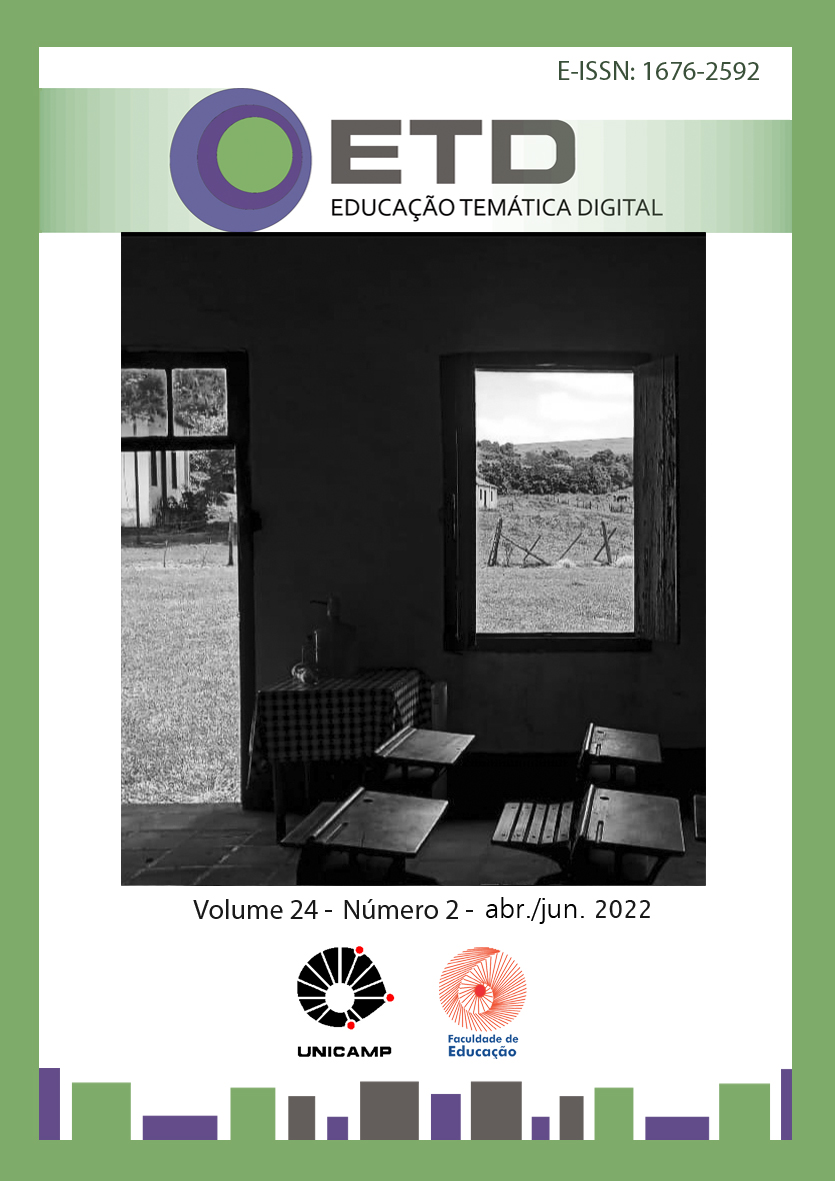Abstract
The text discusses a project developed with 22 students of 5th year of Elementary School. The pedagogical experience was developed in 2016 in a Rio Grande do Sul school of state, in Porto Alegre - RS. It justifies the theme of the project based on previous research by the author. These, at the same time, provided the basis for creating alternatives to approaches science content in the 5th year syllabus and to account for student concerns that were evidenced in previous classes. It is based on the assumption that there is a relative gap with respect to many studies in Environmental Education that remain with anthropocentric looks, despite immense efforts to deviate from this bias, and relegate discussions about human animality to the background. It presents the activities carried out with the students, also lists strategies used and the teacher's interventions. Finally, it brings considerations by exposing and reflecting some results of the project and articulating the experience with the theory of Project Pedagogy.
References
CARNEVALLE, Maíra Rosa. Ligados.com ciências. São Paulo: Saraiva, 2014.
COLLA, Rodrigo Avila. Animalidade e educação moral: cenas da vida selvagem na escola. Tese (Doutorado em Educação) – Escola de Humanidades, Pontifícia Universidade Católica do Rio Grande do Sul, 2018, 277p.
COLLA, Rodrigo Avila. Animalidade, moral e subjetivação: pelo reconhecimento da alteridade para além do outro-humano. Revista Educação (UFSM), Santa Maria, v. 39, n. 3, p. 629-640, set./dez. 2014.
COLLA, Rodrigo Avila. Mãe natureza nos anos iniciais do ensino fundamental: abordagens, discursos e obstáculos em Educação Ambiental. Educação Ambiental em Ação, v. 38, p. 1137, 2011. Disponível em: http://www.revistaea.org/pf.php?idartigo=1137 . Acesso em: 02 de março de 2020.
GRÜN, Mauro. Ética e educação ambiental: a conexão necessária. Campinas: Papirus, 2011.
HERNÁNDEZ, Fernando. Transgressão e mudança na educação: os projetos de trabalho. Porto Alegre: ArtMed, 1998.
HERNÁNDEZ, Fernando; VENTURA, Montserrat. Os projetos de trabalho: uma forma de organizar os conhecimentos curriculares. In: HERNÁNDEZ, Fernando; VENTURA, Montserrat. A organização do currículo por projetos de trabalho: o conhecimento é um caleidoscópio. Porto Alegre: ArtMed, 1998. p. 61-84.
KINDEL, Eunice A. I. Uma nova maneira de ensinar sobre a natureza. Pátio: educação infantil, Porto Alegre, v. 8, n. 25 (out./dez. 2010), p. 8-10.
MORRIS, Desmond. O macaco nu. Rio de Janeiro: Record, c1967.
NIETZSCHE, Friedrich W. Así Habló Zaratustra. Buenos Aires: Libertador, 2009.
RODRIGUES, Vera Regina (coord.). Muda o Mundo, Raimundo. Brasília: WWF, 2002.
VIEIRA, Eduardo Pontes. Somos Todos Iguais? E o que isso tem a ver com Ciências? In: BRASIL. Pacto Nacional pela Alfabetização na Idade Certa. Ciências da Natureza no Ciclo de Alfabetização. Caderno 08 / Ministério da Educação, Secretaria de Educação Básica, Diretoria de Apoio à Gestão Educacional. – Brasília: MEC, SEB, 2015.
WITTGENSTEIN, Ludwig. Investigações filosóficas. São Paulo: Nova Cultura, 1996.
PORTAIS DA WEB UTILIZADOS
BRASIL ESCOLA. Natureza e ação humana. Disponível em: http://brasilescola.uol.com.br/geografia/natureza-acao-humana.htm . Acesso em: 03 de maio de 2020.
COLA DA WEB. O animal humano. Disponível em: http://www.coladaweb.com/biologia/evolucao/o-animal-humano . Acesso em: 05 de abril de 2020.
O MELHOR DA NATUREZA, A água no corpo humano. Disponível em: http://omelhordanatureza.com.br/meio-ambiente/a-agua-no-corpo-humano. Acesso em 05 de abril de 2020.
INFOESCOLA. Biodiversidade. Disponível em: http://www.infoescola.com/geografia/biodiversidade/ . Acesso em 04 de maio de 2020.
REVISTA SUPERINTERESSANTE. O homem não é o único animal racional. São Paulo: Abril, 2011, 289.ed. Disponível em: http://super.abril.com.br/ciencia/o-homem-nao-e-o-unico-animal-racional. Acesso em 05 de abril de 2020.

This work is licensed under a Creative Commons Attribution-NonCommercial-NoDerivatives 4.0 International License.
Copyright (c) 2022 ETD - Educação Temática Digital


